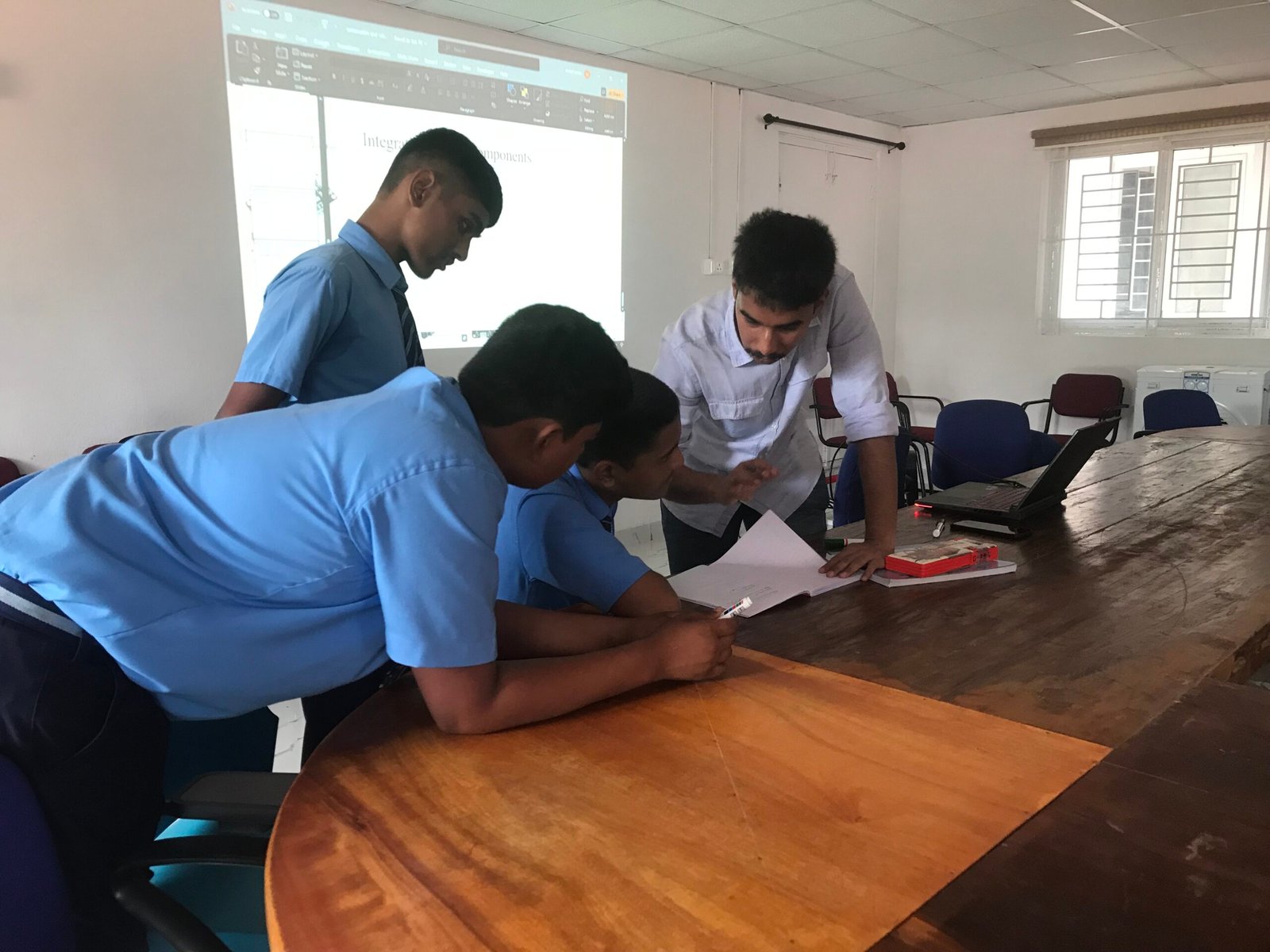Ncc, Scouts And Guides
Lorem ipsum dolor sit amet, consectetur adipiscing elit. Ut elit tellus, luctus nec ullamcorper mattis, pulvinar dapibus leo. Lorem ipsum dolor sit amet, consectetur adipiscing elit. Ut elit tellus, luctus nec ullamcorper mattis, pulvinar dapibus leo. Lorem ipsum dolor sit amet, consectetur adipiscing elit. Ut elit tellus, luctus nec ullamcorper mattis, pulvinar dapibus leo.










Artificial Intelligence
AI refers to the ability of machines to perform cognitive tasks like thinking, perceiving,learning, problem solving and decision making. Initially conceived as a technology that could mimic human intelligence, AI has evolved in ways that far exceed its original conception. With incredible advances made in data collection, processing and computation power, intelligent systems can now be deployed to take over a variety of tasks, enable connectivity and enhance productivity.
Artificial intelligence is gaining the spotlight across applications in our personal and
professional lives. We need to take charge of preparing ourselves and our students for the
future. Hence, Central Board of Secondary Education (CBSE) has decided to introduce Artificial Intelligence as an elective subject.
Beginning with foundational concepts such as what AI is, its history, and its impact on society. This helps students understand the relevance and importance of AI in today’s world. Then to the basic AI algorithms and programming languages commonly used in AI development, such as Python. Exploring the fundamentals of machine learning, including supervised and unsupervised learning techniques and dealing with various real-world applications of AI across different domains such as healthcare, finance, transportation, and education. Students will analyze case studies and learn how AI is transforming industries and improving processes.
By implementing Artificial Intelligence as a skill subject from Class 9 in Air Force School, students not only gain technical proficiency but also develop a deeper understanding of the ethical implications and societal impact of AI. This prepares them to navigate the AI-driven future with confidence and responsibility.
Awareness
Awareness programs in schools are crucial for educating students about various important topics, fostering a well-rounded education of our students that goes beyond academics. Here’s a structured approach to implementing effective awareness programs in schools:
**Empowerment and Education**: Equip students with knowledge and skills to make informed decisions and take proactive actions.
**Community Engagement**: Foster a sense of responsibility and civic engagement among students to address societal issues.
**Holistic Development**: Support students’ emotional, social, and intellectual growth beyond academic achievements.
**Preparation for Life**: Prepare students to navigate challenges, advocate for change, and contribute positively to their communities.
By implementing well-planned and engaging awareness programs in schools, educators in Air Force School can create a supportive environment where students are empowered to learn, grow, and make a difference in the world around them.
Sense of Belongings
A sense of belongingness is crucial for students in any school environment, including Air Force schools. Here’s why it’s particularly important for our students
- **Community and Identity**: Air Force schools often foster a strong sense of community and identity among students. They share common experiences related to military life, which can strengthen their bond and create a supportive environment.
- **Shared Values**: Our school typically emphasize values such as discipline, teamwork, and patriotism. Students who resonate with these values feel a deeper connection to their school and peers.
- **Support Network**: The Air Force School Sulur, students often have access to a supportive network of teachers, staff, and fellow students who understand the unique challenges they may face due to their parents’ military service. This support can enhance their sense of belonging and well-being.
- **Inclusive Environment**: Establishing an inclusive environment where all students feel valued and respected is crucial. Air Force schools often promote inclusivity by celebrating diversity and encouraging empathy among students.
- **Participation and Engagement**: When students feel like they belong, they are more likely to participate in school activities, clubs, and events. This active engagement contributes to their overall academic and social development.
- **Sense of Purpose**: Knowing they are part of a community with a larger mission—supporting the military and its values—can give students a sense of purpose and pride in their school.
- **Transitions and Stability**: Military families often relocate frequently, which can disrupt a student’s sense of belonging in a traditional school setting. Air Force schools provide continuity and stability, offering a familiar environment even in different locations.
To foster a strong sense of belongingness among Air Force school students, we nurture a supportive and inclusive culture, celebrate their achievements and contributions, provide opportunities for meaningful involvement, and ensure they feel connected to their school community and its values.


